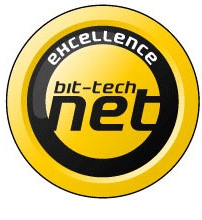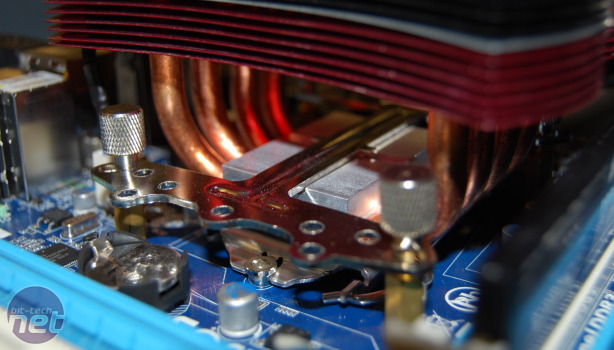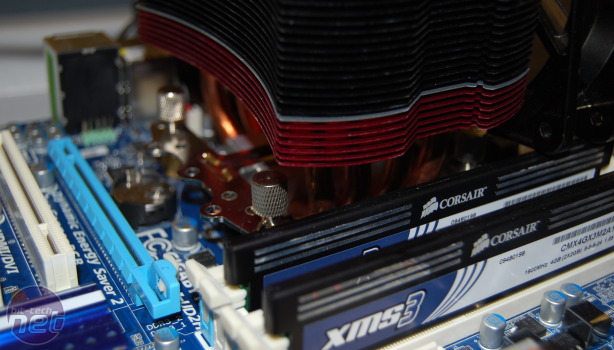Results Analysis
As we’re looking at the Pentium G6950 in this review, the key question is whether it’s worth buying. We therefore tested the CPU against its closest AMD rival on price, which happens to be the Athlon II X3 445, a triple-core, Socket AM3 CPU that costs £74.25.Pitched against such a CPU, the Pentium G6950 was always going to be pipped in heavily multi-threaded applications. Cinebench, WPrime and our own video encoding and multi-tasking tests all favoured the triple-core X3 445 over the dual-core G6950. In some situations the X3 445 was much faster than G6950: it was almost 7 seconds quicker in WPrime, was over 1,500 points in Cinebench, and was 17 per cent quicker when multi-tasking. However, at stock speeds both CPUs returned nearly identical overall scores, as the G6950 was significantly quicker in our image editing test, where high IPC (instructions per clock) is required.
This superior IPC gave the G6950 the advantage in X3: Terran Conflict, which is a highly CPU-dependent game – the minimum frame rate of 35fps was slightly faster than the 33fps of the X3 445. Crysis does scale well beyond two CPU cores though, so it favoured the triple-core X3 445, running at a minimum of 22fps rather than 20fps. While it may look as if the X3 455 is significantly more power thirsty than the G6950, remember that it was tested in an ATX motherboard while the G6950 was in a micro-ATX board – this difference can account for up to 20W.
Overclocking
Despite our best efforts, we could only overclock the X3 455 from 3.1GHz to 3.85GHz, using a vcore of 1.55V and setting the chipset, HTT and Southbridge to 1.3V. We set the HT Link and memory controller frequency to 2,565MHz and the memory to 1,520MHz. As mentioned previously, we overclocked the Pentium G6950 from 2.8GHz to 4.62GHz.After overclocking, the G6950 was amazingly fast, walking all over the X3 445 in almost every test – even the heavily multi-threaded Cinebench ran faster on the two 4.62GHz cores of the G6950 than the three 3.85GHz cores of the X3 455. Every one of our Media Benchmark tests gave the win to the G6950, with its overall score jumping from 1,027 to 1,604, with the X3 455 left way behind on 1,247.
Crysis also preferred the extra frequency over the extra core, running at a minimum of 28fps on the overclocked G6950 on at 27fps on the overclocked X3 455. X3: Terran Conflict jumping from a minimum of 35fps to a minimum of 54fps on G6950, with the X3 455 14fps slower. The huge performance jump from the G6950 didn’t even come with a large rise in power consumption. Thanks to the 1.4V vcore, rather than the 1.55V vcore of the X3 445, it caused our test system to consume much less power than its AMD rival – 82W less under load.
When we removed our graphics card and re-enabled the on-board GPU of the G9650, we needed to drop the overclock by 300MHz. Clearly the extra heat of the GMA HD was enough to make a perfectly solid overclock unstable.
Conclusion
At stock speeds, the Pentium G6950 has a genuine rival in the Athlon II X3 445 – both produce the same overall score, but the X3 445 will reduce the time you have to wait for lengthy video or audio encodes and is more adept at heavy multi-tasking. As it’s these kinds of applications that you tend to get annoyed at having to wait for, there’s an argument for opting for the X3 455.That argument gets blown out of the water if you’ve got a decent H55 motherboard and can overclock the G6950. It’s an amazing CPU for overclocking – we suspect that even our 65 per cent overclock wasn’t all that the chip could give up, with the chipset becoming a limiting factor as we hit the 220MHz Base Clock barrier. Once overclocked, the G6950 is a brilliant performer for almost any type of use. If you’re on a budget, and aren’t scared of a little vcore, the G6950 is an epic processor.
- Performance
- x
- x
- x
- x
- x
- x
- x
- -
- -
- -
- 7/10
- Value
- x
- x
- x
- x
- x
- x
- x
- x
- x
- -
- 9/10
- Overall
- x
- x
- x
- x
- x
- x
- x
- x
- -
- -
- 8/10

Intel Pentium G6950

MSI MPG Velox 100R Chassis Review
October 14 2021 | 15:04











Want to comment? Please log in.